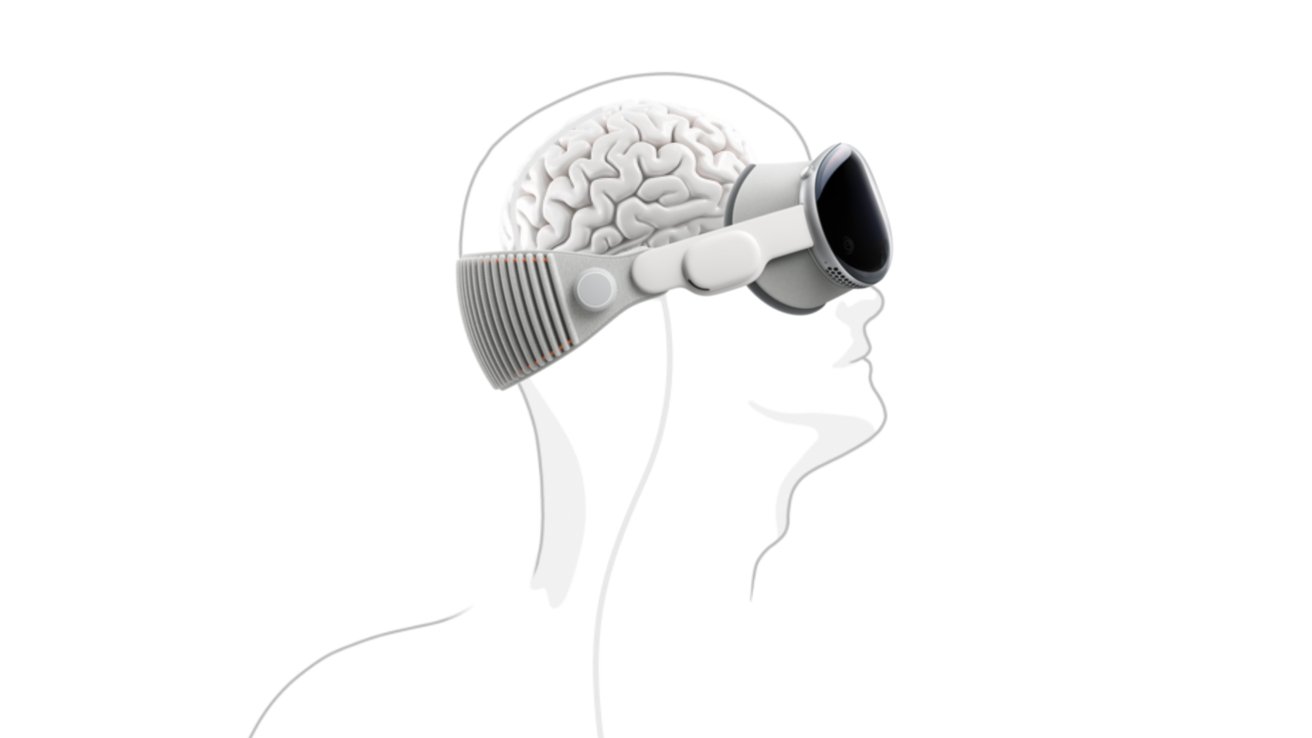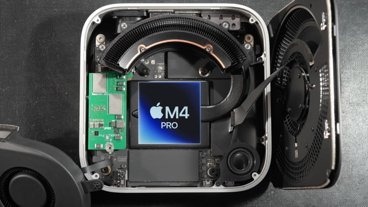Synchron has developed a minimally invasive brain-computer interface capable of controlling devices like Apple Vision Pro, and it has reached the one-year milestone without serious adverse effects to patients.
Brain-computer interfaces are among the latest moonshot technologies being chased in the consumer market. Clinical trials began for Synchron's minimally invasive brain implant in 2022, and it has evolved from potential iPhone and iPad control to Apple Vision Pro control over the years.
According to a press release from Synchron, all six patients with the brain-computer interface had no device-related serious adverse events resulting in death or permanent increase in disability during the first-year post-implant period. Basically, the implanted device didn't cause any problems, and it demonstrated consistent results in capturing brain signals for motor intent.
"The COMMAND study results represent a major medical milestone, confirming the safety of the Stentrode BCI with no neurologic safety events reported during the 12-month study period," said Levy, M.D., MBA, FAANS, FACS, Co-Principal Investigator, COMMAND trial, and president of UB Neurosurgery (UBNS) in the statement. "This minimally invasive approach has the potential to unlock BCI technology at scale for the millions of patients with paralysis and other mobility challenges."
The COMMAND study is the first FDA-approved trial of a permanently implanted brain computer interface. Unlike other brain implants that require dangerously invasive surgery, Synchron's implant is attached via the jugular vein through a minimally invasive endovascular procedure.
The goal of such implants is to allow people that have severe brain injury from events like stroke that result in paralysis to regain some level of functional independence. The patients involved in the initial trial all have severe chronic bilateral upper-limb paralysis that were unresponsive to therapy.
Once installed and functional, the brain computer interface can interpret signals and turn them into actions like moving a cursor or clicking. Such a device could control an iPhone, iPad, smart home appliance, or Apple Vision Pro.
 Wesley Hilliard
Wesley Hilliard







-m.jpg)






 Marko Zivkovic
Marko Zivkovic
 Mike Wuerthele
Mike Wuerthele
 Christine McKee
Christine McKee
 Amber Neely
Amber Neely
 Sponsored Content
Sponsored Content


 William Gallagher
William Gallagher








6 Comments
Oh god I hope I'm gone before it becomes mainstream!
That will be a challenge for quite a few politicians if they should use such application. -on both side of the aisle.
I was hoping they’d also develop a way for Apple Vision Pro to control my brain, especially in the short term memory department. Or maybe that’s a job for Apple Intelligence - augmented intelligence.
So, is it "non-invasive", or is it "minimally invasive". The article uses both terms. Assuming current standard English usage, those are not the same thing.
Starts off non-invasive, then minimally invasive, oh yeah it’s attached to your jugular vein. This gives off Divergent/Insurgent vibes; either you are controlled by a evil group or removing may cause your death.